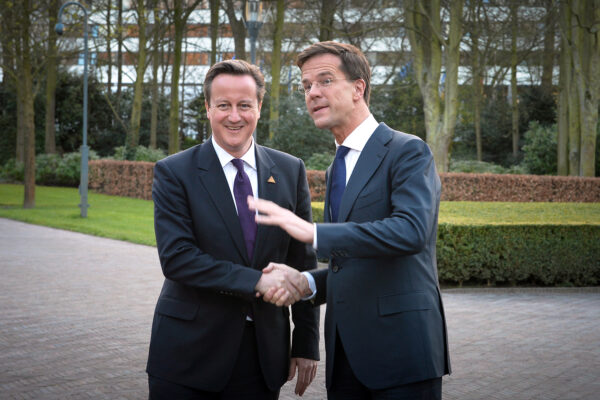
Parties in the Netherlands regret Britain’s decision to leave the European Union but are also motivated to press ahead with their own plans to reform the bloc.
Halbe Zijlstra, the parliamentary leader of Prime Minister Mark Rutte’s liberal party, said on Monday that he understands the British were dissatisfied with the “European express train that keeps thundering on.”
“This sentiment lives in the Netherlands as well,” he said.
Jeanine Hennis-Plasschaert, another liberal party member and the defense minister, told the European Parliament the next day the vote in the United Kingdom should come as a “wake-up call to us all.”
Fewer rules, less fuss
Rutte has argued for years that the EU needs to scale down its ambitions.
After the European Parliament elections in 2014, in which Euroskeptics won more seats than ever, he said voters were clamoring for “fewer rules and less fuss from Europe” and that the union should focus on “where it can add value.”
A year earlier, his government had circulated a memo that called for a halt to “creeping” EU competencies, saying “the time of an ever-closer union in every possible policy area is behind us.”
The Dutch specifically argued against harmonizing social security systems, tax rates, laws governing food safety and working conditions.
Ally
The British have been an important ally in blocking such centripetal pressures, which emanate mostly from the south.
The two seafaring nations share a preference for free trade over protectionism and prioritized deepening the European single market over political union.
The fear in the Netherlands is that the balance in Europe now shifts to the Mediterranean member states.
Already, politicians in France and Spain are arguing the solution is “more Europe,” not less.
Not everyone in the Netherlands disagrees. The liberal Democrats and the Green party are outspokenly pro-EU and unambiguously on one side of what we’ve called the blue-red divide. But even the parties in the center, including Labor, think pushing for closer union at this moment would be foolhardy.
Euroskepticism rising
Nobody wants to risk aggravating Dutch Euroskepticism, which has been rising.
The Dutch voted down a proposed constitution for the European Union in 2005 and a majority opposed the bailouts for Greece that started in 2010.
Earlier this year, voters rejected an EU association agreement with Ukraine in a referendum.
The nationalist Freedom Party is now calling for an in-our referendum in the Netherlands. None of the other parties support this and polls suggest a majority of the Dutch would vote to stay in. But the Freedom Party is also the largest party in the polls. The Dutch know what happens when Euroskeptic sentiment is ignored.
